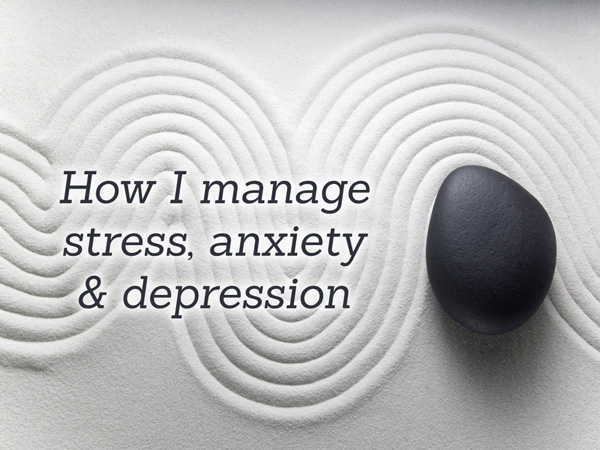
I’m a firm believer that everyone in the world should have therapy.
Why?
Because therapy is not about you telling your therapist your problems and walking away with solutions.
Therapy is about tools – tools that help you construct a plan to manage whatever it is you are seeking therapy for. The best things about these tools is that once we have them, they are with us for life. They create resilience because they help us manage all kinds of problems – not just the ones we originally sought assistance for.
Last week in this seminar I was chatting about the tools I use to manage stress, anxiety and depression (anxiety being something my personality type is particularly prone too). And it occurred to me that if these tools are useful for me, they’d probably be useful for you too.
Stress
Of the three things I mentioned above, stress is the one that impacts my life in the worst way. The biggest benefit of learning to live a more intentional life has been the fact that stress is not really part of my life any longer.
So what have I done to manage it out of my life?
Well it took 35 years, but my therapist helped me realise the number one cause of stress for me was rushing.
Rushing was an indicator that I was overscheduled and overcommitted. When I was overscheduled and overcommitted I had zero resilience which meant even the tiniest contingencies in my day would send me into a tailspin.
What tools did I use to manage my stress levels?
And I made sure there was time in my day to meander.
Depression
The major thing that keeps depression at bay for me is exercise. If for whatever reason I can’t exercise, I guarantee within two weeks I will find myself in a very deep hole. (Even if I have stress and anxiety under control.)
So I make time to exercise every day.
Even if it’s 10 minutes on the rower. Or a 10 minute walk around the block, or to the shops. Even if the ‘exercise’ is so slow it can barely be called ‘exercise’. It doesn’t matter. The simple act of getting out and moving my body each day releases just enough happy hormones to keep me on a nice, even keel.
Anxiety
Anxiety was part of my life about 20 years before I had a name for it. The incessant worrying about the future, long nights lying in bed with a racing mind, panic attacks ranging from mild to crippling – they’ve been with me for as long as I can remember. Good times!
So what changed things for me?
Well you’ve probably heard this quote (credited to Lao Tzu):
If you are depressed, you are living in the past. If you are anxious, living in the future. If you are at peace you are living in the moment.
Thanks to Eckhart Tolle and his book The Power of Now, I finally got my head around the whole ‘living in the moment’ thing.
It’s all very good to rationalise that 90% of the things we worry about never actually happen. And it’s all very good to know that worrying about something doesn’t actually make it any easier to deal with when it does happen. But that is rational.
You know what trumps being rational? Simple truth.
And the simplest truth in The Power of Now was this:
‘You can always cope with the now’.
Stop and think about all the worst things that have happened in your life. Now check your strike rate for coping with them. It’s 100% right?
That’s because we CAN always cope with whatever it is that’s happening to us right at any given moment in time.
Once I got this straight in my head it made a huge difference for me. Nowadays, every time my mind starts sprinting towards a potential future disaster (big or small) I catch it. And I remind it that if that thing does happen, I will be able to cope.
But right now, right at this very moment, that thing is not happening.
And Tzu is right. There IS great peace in knowing that.

